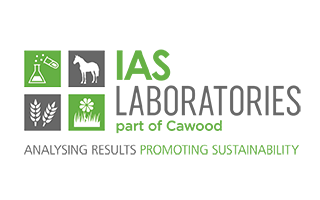Soil sampling: more important now than ever before?
February 2023
IAS Soil Team
The importance of soil sampling is not a new concept. Analysis, undertaken by an INAB accredited laboratory, can provide useful information about the chemical, biological, and physical conditions of your soil. The main principle of soil analysis is to determine the nutrient status of a given area and measure the available nutrients in the soil. This helps growers and their advisors plan effective crop nutrition strategies, and refine those strategies during the season, to optimise yield and profitability.
With the increased costs of chemical fertilisers, together with new spreading restrictions that have been implemented in Ireland in 2023, now is the optimal time to take soil samples for accurate, up-to-date data.
What are the new regulations for farmers?
New regulations for tillage farmers came into force on 1st January 2023. Now, all tillage land sown must have up-to-date soil data from the last 3 years. These results will allow farmers and their advisors to tailor fertiliser plans for the coming year to match the needs of the soil and the crop.
The Department of Agriculture, Food and the Marine (DAFM) introduced the Nitrates Action Programme to prevent pollution of surface waters and groundwater from agricultural sources, This programme aims to protect and improve water quality, as well as reduce potential losses of nutrients post-harvest, by encouraging more sustainable farming practices.
From 1st January 2023, all livestock farmers for those stocked at above 130Kg N/Ha must take soil samples, in addition to those stocked at above 170Kg N/Ha. Soil sampling is also now mandatory for all tillage ground from 1st January.
As these regulations are currently routine for nitrate derogation farmers, they will already be familiar with these rules. If soil sampling is not carried out, Index 4 for phosphorus will be assumed.
For more information on the regulations and what you must do, read the DAFM informational leaflet here.
Why is taking a representative soil sample important?
The most important point to remember when taking a soil sample is that any analytical result is only as good as the sample taken. Taking a representative soil sample will yield the most accurate results, so farmers and advisors can use data to inform and refine their management plans for optimal productivity.
With the price of chemical fertilisers skyrocketing, it is more important than ever to ensure your pH balance is correct to achieve the optimal return from your fertiliser. A pH close to neutral will improve the availability of nutrients to the plant, with 100% of NPKs available to the crop at pH 6.5.

How do I take the best soil sample?
- Divide the farm into areas of minimum 2-4ha and maximum 8ha. To get a representative sample of the area, take at least 20 soil cores. (Please note that the number of soil samples you need to take and how many years you should leave between each sampling will depend on whether you are a nitrate derogation farmer or not. Please discuss further with your advisor.)
- Take separate samples from areas that differ in soil type, previous cropping history, slope, drainage, or persistent poor yields.
- Avoid any unusual spots such as old fences, ditches, drinking troughs, dung or urine patches, or where organic manure or lime has been heaped or spilled in the past.
- Do not sample a field for P and K until 3-6 months after the last application of P and K fertiliser. Where lime has been applied, allow a time lag of 2 years before sampling to determine lime requirements. Whilst these delays are not critical, they are advisable, especially in the case of slow acting lime.
- Follow a ‘W’ soil sampling pattern to ensure that the sample is representative of the entire field.
- Ensure that all soil cores are taken to the full 100mm/10cm/4” depth.
- Place the soil cores in the soil box/bag to make up the soil sample.
- Write the field number and sample number on the soil box/bag.
- Fill out the appropriate paperwork before dropping your samples to IAS Laboratories.
IAS provides soil analysis for farmers all over Ireland to help you comply with the latest regulations and optimise yield. To book your tests now, contact our team on 059 9721022 or [email protected].
